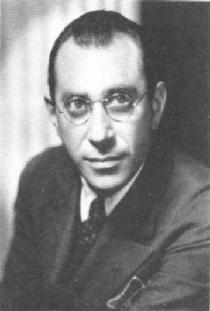Herbert Biberman | |
|---|---|
 | |
| Born | Herbert Joseph Biberman March 4, 1900 Philadelphia, Pennsylvania, U.S. |
| Died | June 30, 1971 (aged 71) New York City, New York, U.S. |
| Other names | Herbert J. Biberman |
| Occupation(s) | Screenwriter and film director |
| Spouse | |
| Children | 2 |
| Relatives | Edward Biberman (brother) |
Herbert J. Biberman (March 4, 1900[1] – June 30, 1971) was an American screenwriter and film director. He was one of the Hollywood Ten and directed Salt of the Earth (1954), a film barely released in the United States, about a zinc miners' strike in Grant County, New Mexico. His membership in the Directors Guild of America was posthumously restored in 1997; he had been expelled in 1950.
Biberman was born in Philadelphia, Pennsylvania, to Joseph and Eva Biberman and was the brother of American artist, Edward Biberman.[2] Biberman's pre-blacklist career included writing such films as King of Chinatown (1939), When Tomorrow Comes (1939), Action in Arabia (1944), The Master Race (1944), which he also directed, and New Orleans (1947), as well as directing such films as One Way Ticket (1935) and Meet Nero Wolfe (1936). He married actress Gale Sondergaard in 1930; the marriage lasted for the rest of Biberman's life. Biberman died from bone cancer in 1971 in New York City.
- ^ 1921 US Passport Application
- ^ "Brush With Life: The Art Of Being Edward Biberman - Documentary Film Description". www.organa.com. Archived from the original on 2017-10-06. Retrieved 2017-10-06.
His brother, Herbert Biberman, was the screenwriter and director known for having been one of the Hollywood Ten.